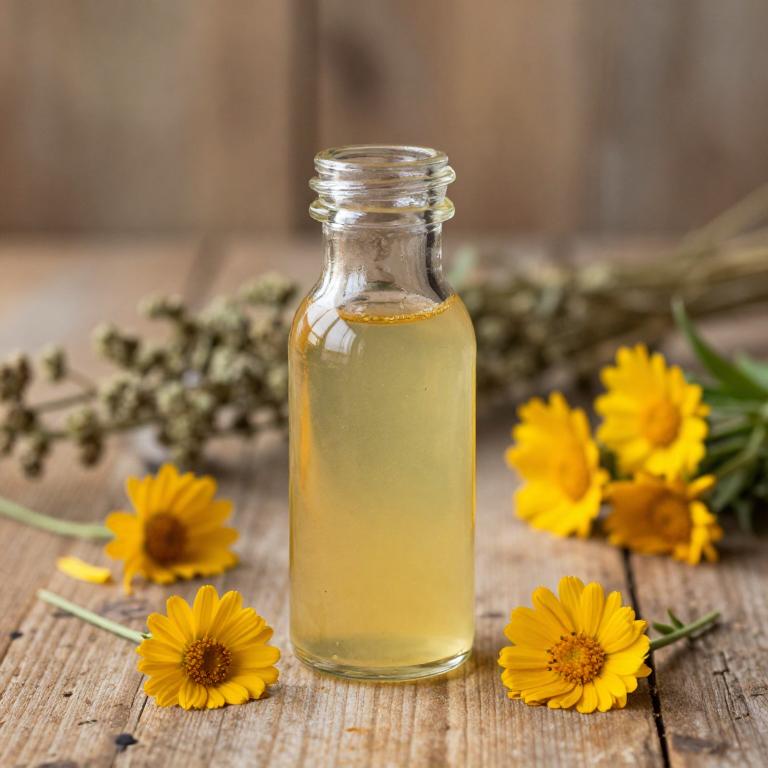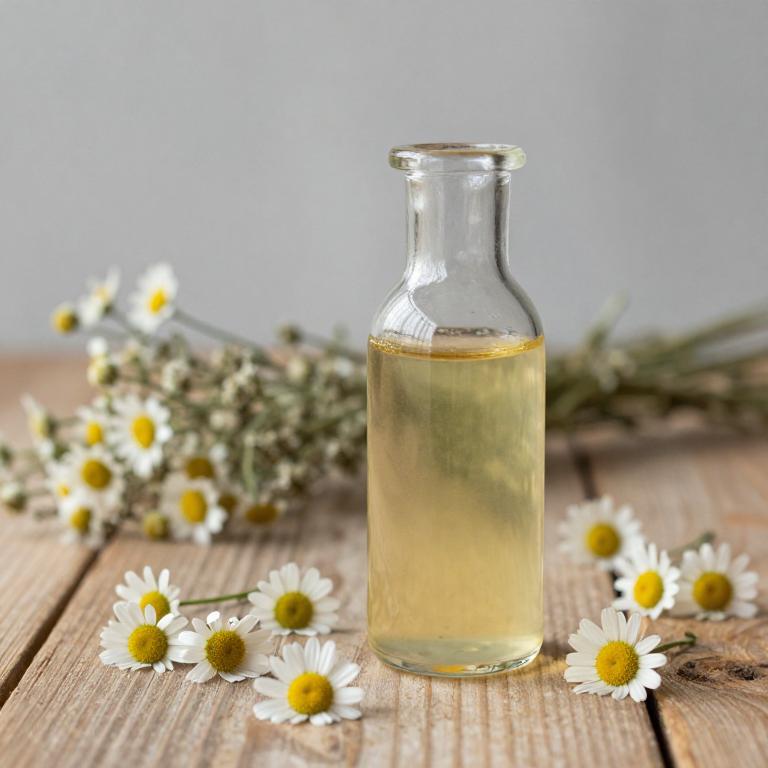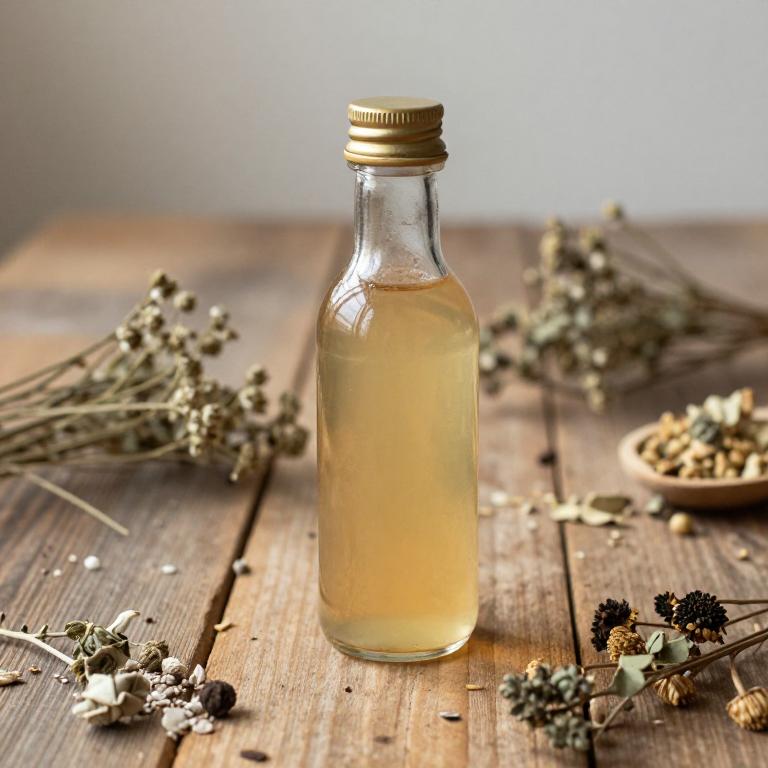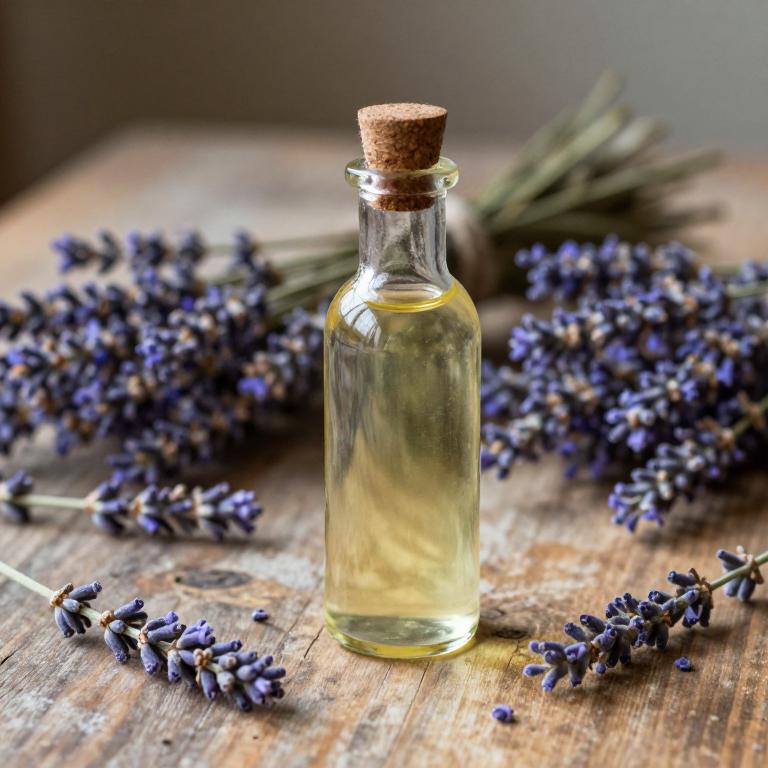10 Best Herbal Juices For Sunburn

Herbal juices can offer a natural and soothing remedy for sunburn by providing anti-inflammatory and antioxidant properties that help reduce redness and irritation.
Ingredients like aloe vera, cucumber, and parsley are commonly used in herbal juices due to their cooling and hydrating effects on the skin. These juices can help replenish moisture and promote skin healing, making them a gentle alternative to commercial sunburn treatments. To use them effectively, it's best to apply the juice directly to the affected area or consume it to support internal healing.
While herbal juices can alleviate symptoms, they should not replace medical advice for severe sunburn cases.
Table of Contents
- 1. Aloe vera (Aloe barbadensis)
- 2. Marigold (Calendula officinalis)
- 3. St. john's wort (Hypericum perforatum)
- 4. Stinging nettle (Urtica dioica)
- 5. Dog rose (Rosa canina)
- 6. Chamomile (Matricaria chamomilla)
- 7. Centella (Centella asiatica)
- 8. English lavender (Lavandula angustifolia)
- 9. Chaste tree (Vitex agnus-castus)
- 10. Thistle (Silybum marianum)
1. Aloe vera (Aloe barbadensis)

Aloe barbadensis, commonly known as aloe vera, is widely recognized for its soothing and healing properties, making it a popular choice for treating sunburn.
The gel extracted from the aloe leaf contains anti-inflammatory compounds that help reduce redness, swelling, and pain associated with sunburn. Aloe vera juice, derived from the inner gel, can be applied topically to the skin to promote faster healing and hydration. It is often used in natural skincare products and is considered safe for most skin types when used as directed.
Due to its cooling effect and ability to replenish moisture, aloe barbadensis herbal juice is a favored remedy for relieving discomfort from sunburn.
2. Marigold (Calendula officinalis)

Calendula officinalis, commonly known as the pot marigold, is a versatile herbal plant often used to make soothing herbal juices that can help alleviate the symptoms of sunburn.
These juices are rich in anti-inflammatory and antioxidant properties, which can reduce redness, swelling, and pain associated with sunburn. When applied topically, calendula juice can promote skin healing and provide a cooling effect, making it a natural remedy for sun-exposed skin. To prepare the juice, the fresh petals of the calendula flower are typically crushed and strained to extract the beneficial compounds.
While calendula juice is generally safe for most skin types, it is advisable to perform a patch test before applying it extensively to ensure no allergic reaction occurs.
3. St. john's wort (Hypericum perforatum)

Hypericum perforatum, commonly known as St. John's Wort, has been traditionally used for its potential healing properties, including its ability to soothe sunburn.
While it is more commonly used in topical creams or oral supplements, some individuals have explored the use of hypericum perforatum herbal juices for their sunburn relief. The juice is believed to contain compounds such as hyperforin and flavonoids, which may help reduce inflammation and promote skin healing. However, it is important to note that there is limited scientific evidence supporting the effectiveness of hypericum perforatum juice specifically for sunburn treatment.
As with any herbal remedy, it is advisable to consult a healthcare professional before using it, especially if you are on medications or have sensitive skin.
4. Stinging nettle (Urtica dioica)

Urtica dioica, commonly known as stinging nettle, has been traditionally used for its medicinal properties, including its potential benefits for skin health.
While it is not typically consumed as a juice for sunburn relief, some herbal remedies suggest that stinging nettle juice may help reduce inflammation and soothe irritated skin due to its high concentration of antioxidants and anti-inflammatory compounds. However, it is important to note that there is limited scientific evidence supporting the effectiveness of urtica dioica juice specifically for treating sunburn. Before using any herbal remedy, it is advisable to consult with a healthcare professional, especially if you have sensitive skin or existing medical conditions.
Overall, while stinging nettle may offer some general skin benefits, it should not be considered a primary treatment for sunburn without further research and professional guidance.
5. Dog rose (Rosa canina)

Rosa canina, also known as dog rose, is a traditional herbal remedy that has been used for centuries to support skin health and recovery.
Its juice, derived from the berries of the Rosa canina plant, is rich in antioxidants, vitamins, and anti-inflammatory compounds that can help soothe sunburned skin. When applied topically, rosa canina juice may help reduce redness, inflammation, and irritation caused by excessive sun exposure. It is often recommended as a natural alternative to commercial sunburn treatments due to its gentle and soothing properties.
However, it is important to consult with a healthcare professional before using it, especially if you have sensitive skin or underlying health conditions.
6. Chamomile (Matricaria chamomilla)

Matricaria chamomilla, commonly known as chamomile, is often used in herbal juices to help alleviate the discomfort of sunburn due to its anti-inflammatory and soothing properties.
The essential oils found in chamomile, such as bisabolol and chamazulene, have been shown to reduce redness, swelling, and irritation associated with sunburn. When consumed as part of a herbal juice, chamomile can also support the body's natural healing process by promoting skin regeneration and reducing oxidative stress. However, it is important to note that internal consumption of chamomile should be done with caution, especially for those with allergies or on certain medications.
For topical application, chamomile-infused oils or compresses are often recommended as a more direct way to soothe sunburned skin.
7. Centella (Centella asiatica)

Centella asiatica, also known as gotu kola, is a traditional herb widely used for its healing properties, including its ability to soothe sunburn.
The herbal juice extracted from Centella asiatica contains active compounds like asiatic acid and madecassic acid, which have anti-inflammatory and skin-repairing effects. Applying this juice directly to sunburned skin can help reduce redness, swelling, and discomfort caused by UV exposure. It also promotes faster skin regeneration and hydration, making it a natural remedy for sunburn relief.
Due to its gentle nature, Centella asiatica herbal juice is suitable for sensitive skin and can be used as a complementary treatment alongside other sunburn remedies.
8. English lavender (Lavandula angustifolia)

Lavandula angustifolia, commonly known as English lavender, has been traditionally used for its soothing and healing properties, and its essential oils and herbal juices are increasingly being explored for their potential to alleviate sunburn symptoms.
The anti-inflammatory and antioxidant compounds in lavender, such as linalool and linalyl acetate, may help reduce redness, swelling, and pain associated with sunburn. When consumed as a herbal juice, lavender can support internal healing by promoting skin regeneration and reducing oxidative stress caused by UV exposure. However, it is important to note that while topical applications of lavender are well-documented, internal use should be approached with caution and under professional guidance.
Overall, lavender herbal juices offer a natural and calming approach to managing sunburn, complementing traditional treatments with a holistic healing perspective.
9. Chaste tree (Vitex agnus-castus)

Vitex agnus-castus, commonly known as chaste tree, has been traditionally used in herbal medicine for its potential soothing and healing properties.
While it is not a substitute for conventional sunburn treatments, some herbalists suggest that vitex-based herbal juices may help reduce inflammation and promote skin recovery when applied topically. These juices are believed to contain compounds that support skin health and may offer mild antioxidant benefits. However, it is important to note that scientific evidence supporting its effectiveness for sunburn is limited, and it should not replace proven remedies like aloe vera or cool compresses.
Always consult a healthcare professional before using any herbal remedy, especially if you have sensitive skin or underlying health conditions.
10. Thistle (Silybum marianum)

Silybum marianum, commonly known as milk thistle, is a herbal plant that has been traditionally used for its potential health benefits, including its antioxidant and anti-inflammatory properties.
Some herbal juices made from silybum marianum are believed to help alleviate the symptoms of sunburn by reducing inflammation and promoting skin healing. The active compound in milk thistle, silymarin, is thought to protect skin cells from oxidative damage caused by UV radiation. While there is some anecdotal support for its use in treating sunburn, more scientific research is needed to confirm its efficacy.
As with any herbal remedy, it is advisable to consult a healthcare professional before using silybum marianum juice for sunburn or any other health condition.